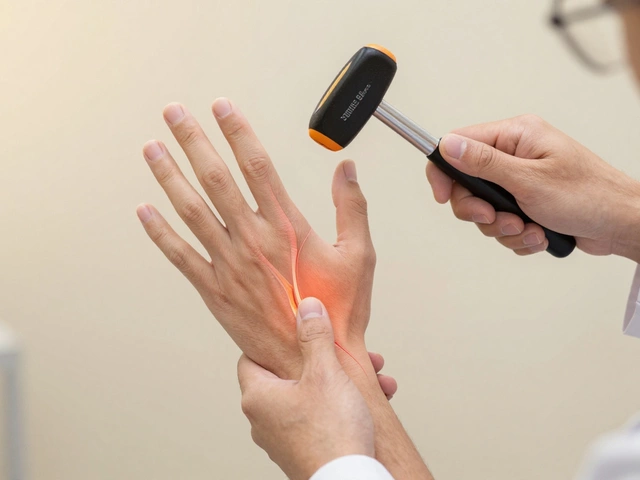Full Body Checkup: Your Quick Guide to a Healthier You
If you’ve ever wondered whether a full body checkup is worth the time and money, you’re not alone. In India, more people are choosing comprehensive health screenings to catch problems early and avoid future headaches. Below we break down what a full body checkup actually covers, why it matters, and how you can walk into the clinic feeling prepared.
What Does a Full Body Checkup Include?
A typical full body checkup bundles together a set of core tests that give a snapshot of your overall health. Most labs in major cities offer a standard package that covers:
- Blood pressure and BMI measurement
- Complete blood count (CBC) to spot infections or anemia
- Blood sugar (fasting and post‑prandial) to screen for diabetes
- Lipid profile – cholesterol and triglycerides to gauge heart risk
- Liver function tests, including ALT, AST, and bilirubin
- Kidney function tests – serum creatinine and eGFR
- Thyroid panel (TSH, T3, T4)
- Urine analysis for kidney health and infections
- ECG to check heart rhythm
Some packages add extra imaging like a chest X‑ray, abdominal ultrasound, or even a full-body MRI if you have specific risk factors. The exact mix varies by provider, so it’s smart to ask what’s included before you book.
Why You Should Consider One
Early detection is the biggest advantage. Conditions such as high blood pressure, type‑2 diabetes, or thyroid disorders often develop without clear symptoms. A routine screen can flag these issues before they cause damage. For busy professionals, catching a problem early means fewer sick days and lower treatment costs down the line.
Another plus is peace of mind. Knowing your numbers are in a healthy range lets you focus on other goals instead of worrying about hidden illnesses. It also gives you a baseline to compare against future tests, making it easier to track progress if you change diet, start a new workout routine, or quit smoking.
How to Prepare for Your Checkup
Preparation doesn’t have to be complicated. Follow these simple steps to ensure accurate results:
- Fast overnight (8‑10 hours) if your package includes fasting glucose or lipid profile. Water is fine.
- Stay hydrated the day before. Proper hydration makes urine samples clearer and reduces the chance of a failed draw.
- Bring a list of medications you’re taking, including over‑the‑counter vitamins. Some supplements can affect liver or kidney tests.
- Wear comfortable clothing that allows easy access to the arm for blood draws and the chest for ECG leads.
- Schedule early morning appointments if possible. Blood pressure tends to be lower after a good night’s sleep, giving a more consistent reading.
If you’re on medication for blood pressure or diabetes, talk to your doctor about whether you should pause or adjust the dose before the test.
What to Do After the Results Arrive
When the lab sends your report, don’t panic if a value is out of range. Most labs provide a brief interpretation and recommend a follow‑up with your primary doctor. Use the results as a conversation starter: ask how a high cholesterol number can be lowered with diet, or whether a slightly elevated liver enzyme needs further imaging.
If all numbers look good, celebrate the win and keep up the habits that got you there. Regular exercise, balanced meals, and limiting alcohol will help you stay in the green zone for the next year.
In short, a full body checkup is a practical tool for anyone who wants to stay ahead of health issues. It’s affordable, usually completed in a single visit, and gives you a clear picture of where you stand. Book your screening today, follow the simple prep steps, and use the results to make smarter health choices.

Full Body Checkup: What to Expect in a Health Checkup Package
Curious about full body checkups? This article breaks down exactly what’s included in a typical health checkup package. You’ll get clear details on the tests, why they matter, and what you can expect during the process. Learn tips on preparing for your visit and how to use your results. Whether you’re going for your first checkup or just want to stay ahead with preventive care, this guide will help you feel ready.

Best Health Tests for Comprehensive Body Checkup in 2024
Selecting the right tests for a full body checkup is crucial for proactive health management. With numerous options available, understanding which tests provide the most comprehensive overview of your health is important. This article explores various health check packages, key tests involved, and their benefits to help you choose wisely. Stay informed and proactive about your health as you navigate the numerous diagnostic options available in 2024.

Which Country Has the Unhealthiest Diet?
Apr, 15 2025

What Is the Newest Alternative to Knee Replacement?
Oct, 30 2025


